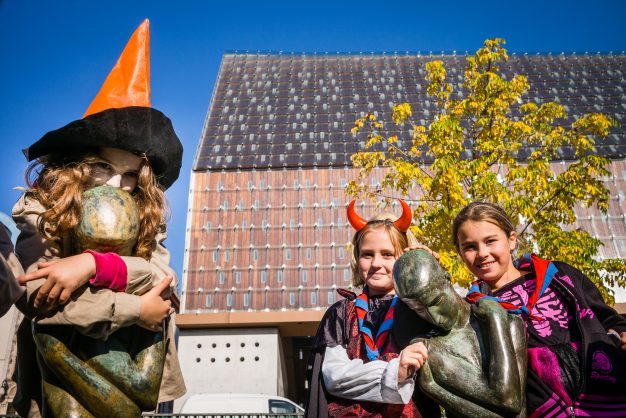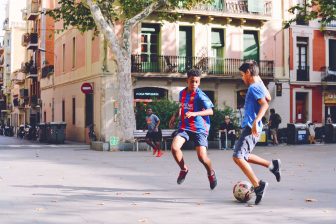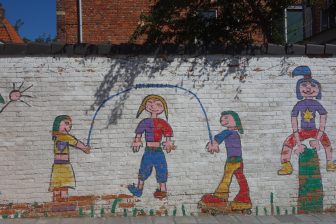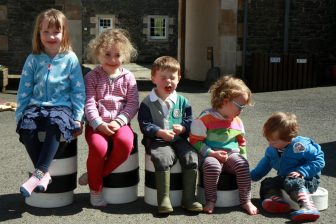
The City of Ghent’s strategic plan to be a child and youth-friendly city
With more than 250.000 inhabitants, Ghent is the 3rd largest city of Belgium. In 2013, the newly elected city council announced its commitment to become the most child and youth-friendly city (CYFC) of the Flemish region: an ambition that was a key, integral policy goal within the municipality’s mission statement and overall strategic plan. This was a bold political choice, all the more remarkable, given the context of budgetary constraints and confusion about the future of local youth policy at the level of the regional Flemish government.
Becoming a CYFC requires much more than attractive new playgrounds: it implies coordinated commitments and action in each of the domains that impact on children and young people’s lives: education, mobility, spatial planning, social care, health and wellbeing, environment, culture and sports, as well as the more obvious youth and play services. A genuine CYFC will bear down on child poverty, youth unemployment and be committed to accessible, affordable high quality childcare.
Integrated play
Because of this wide range of policy areas, all departments of the city administration, as well as parents, teachers, economical actors, social workers, and commercial entrepreneurs need to be involved. Therefore, an inclusive and integrated approach is necessary: combining different stakeholders and addressing the full diversity of children and young people – especially the most vulnerable.
To achieve this, Ghent can build on its long history of integrated play area planning. The city’s youth department was one of the first in Flanders to bring together representatives from different departments around the planning of playgrounds, based on an integrated vision for child-friendly urban planning and design. This culture of shared responsibility for creating play opportunities for children helped the city to take the next step towards an integrated CYFC strategy.
Key points
The CYFC strategy consists of 14 key points:
- The city takes children and young people’s voices into account in every decision
- More green and open spaces are dedicated to sports, play and social encounters
- There are strong and accessible youth services and leisure activities
- Children and young people can easily and safely move around the city
- City services and events are child and family-friendly
- Youth unemployment is tackled, giving special attention to the least educated young people
- There are measures to reduce child poverty and generate more opportunities for disadvantaged children and young people
- There are more schools and child care facilities
- Children and young people are well informed
- Children and young people’s health and wellbeing is promoted
- High quality child and youth-friendly housing and neighbourhoods are developed
- There is support for social cohesion, intergenerational respect and citizenship
- There are family-friendly working conditions for the city administration’s employees
- Child and youth-friendly tourism is promoted
A children’s secretary
In order to make the commitments of the CYFC strategy more visible – both within the city administration and to children, young people, parents, social workers and other stakeholders – the new post of Children’s Secretary has been created with the important task of building support and enthusiasm for the concept of the CYFC. The post-holder aims to be an accessible spokesperson and host and to collaborate intensively with the CYFC program director, who coordinates the planning process and the implementation of the different aspects of the CYFC policy.
Author: Sven De Visscher



